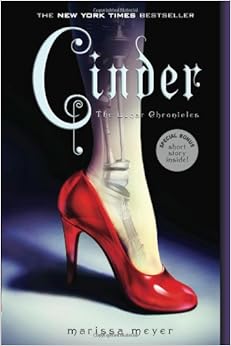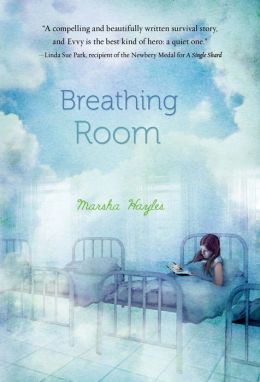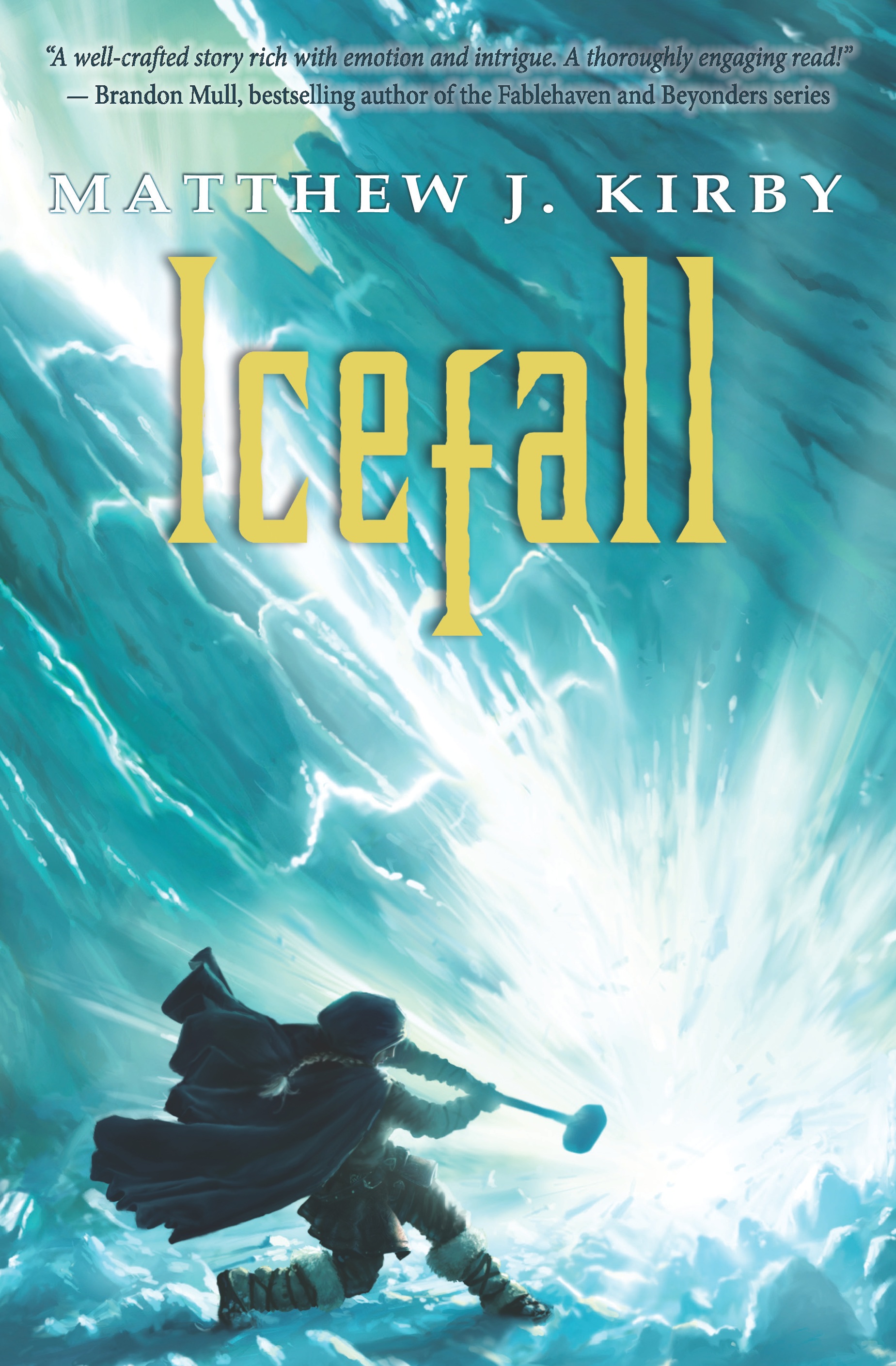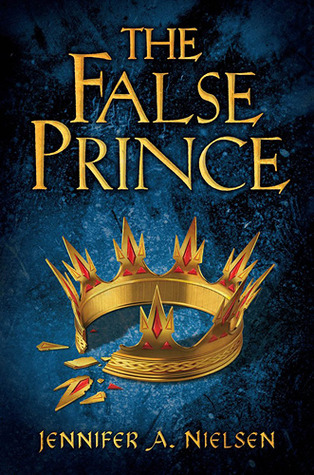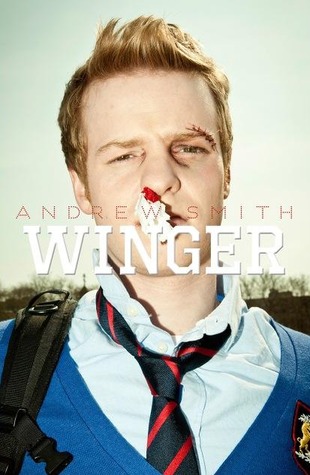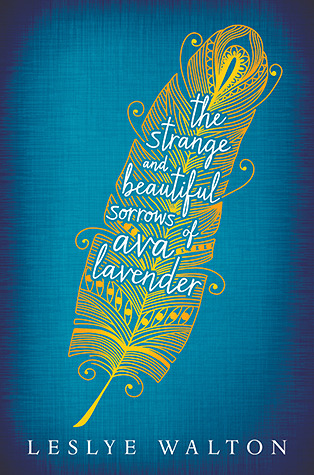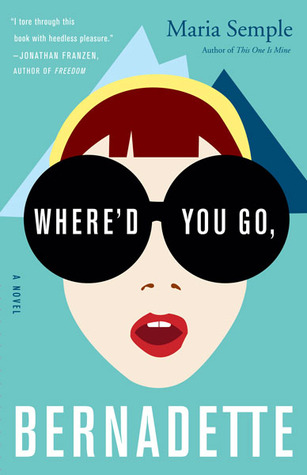I finished with the Maud Hart Lovelace books about a week ago. Let's jump into talking about the last four books and be
done with this little project.
I really was pretty impressed by Marissa Meyer's
Cinder. Sadly, I'm having a hard time remembering exactly why...that's probably not a great sign.
Okay. I can do this. First, the story frequently zigged where I thought it would zag. I mean, the broad strokes were easy to call - of course Prince Kai would fall for Cinder, of course Cinder is the missing Lunar princess, etc. But for a spin on Cinderella, the story doesn't ever follow the map most of us would be following (that of the Disney movie, of course). The world-building is good, Cinder is a pretty enjoyable character, and so on. All that said, a lot of what I read fell right out of my head when I put the book down and moved on. So.
Trent Reedy's
Words in the Dust was another book where I failed at predicting what was coming. Which, in hindsight, was rather unfortunate; the end caught me
entirely off-guard. But let's start at the beginning. I appreciated the fact that Zulaikha's education was given the same weight as fixing her cleft lip. I liked the (presumably authentic?) glimpses of Afghani culture. I liked the relationship between the sisters. But the end.
Look, I think it's important to talk about the way women around the world are treated by men and I totally believe that what happened to Zeynab has happened to young girls. But the way it went down just doesn't sit right with me as I reflect on it. I mean, the parallels made between Zulaikha's repaired lip and Zeynab's severe burns that split her lip open...it bugs me. I'm not sure exactly why. Also, the descriptions of her injuries were
brutal. And again, this is a necessary conversation. It just seemed like Reedy maybe tried to do a little too much. Or something. I don't know. There's something I can't quite put my finger on that left a bad taste in my mouth.
Speaking of which, we have finally found my least favorite book in the bunch. So congratulations,
Ghost Dog Secrets. I almost abandoned this book very early on, about the time a sixth-grade student says something about dogs not receiving "proper veterinary care" (or something equally stilted that would never come out of the mouth of a
sixth grader). It got
slightly better. But not a lot.
Let's talk about, for instance, the way Rusty's class learned about how to identify a meth lab (what?!) shortly before he did just that (by the ammonia smell, because of course he did). Or the pedantic descriptions of how Rusty goes to the library to research ghosts after seeing the titular ghost dog (that said, it did lead to a reference to the movie
Ghost Dog: Way of the Samurai, so that's kind of entertaining). Or Rusty's game with his friend where they come up with alliterative groups of words that they describe as "threesomes" (again, what?! and they are
dumb). Anyway, my students dig Peg Kehret's books and heaven knows, everyone loves dogs (and abusing dogs is clearly
the worst thing you can do), so I'm sure there are kids that will like this one. But I am solidly
not in that camp.
Which brings us to the final book: Margi Preus's
Heart of a Samurai. Very good. It reminded me, inevitably, of
Moby Dick, which I mean as a compliment. I love that it's based on a true story - what a life! The descriptions of Manjiro's time at sea were my favorite and I appreciated the lack of closure or truly happy endings; he was never really at home anywhere, which seemed incredibly honest.
Not much to say about this one, I'm sad to say. It's a lot easier to talk about the bad stuff and I have little to complain about with
Heart of a Samurai. Outside of maybe wishing Preus had found a way to work in something about how the whaling industry decimated (and continues to harm) worldwide whale populations, though I acknowledge that would probably be rather awkward.
So here we are. Since this is a competition (which I can't actually participate in), it seems proper to close with a ranking (based on how I feel right now; it seems important to note that 2-6 and 7-11 could probably be ties and could certainly jump around depending on the day - the only two I'm sure of are my top and bottom). So, from worst to best...
12.
Ghost Dog Secrets by Peg Kehret
11.
Wild Life by Cynthia DeFelice
10.
Words in the Dust by Trent Reedy
9.
Chomp by Carl Hiaasen
8.
My Life as a Book by Janet Tashjian
7.
Breathing Room by Marsha Hayles
6.
Cinder by Marissa Meyer
5.
Heart of a Samurai by Margi Preus
4.
Liar and Spy by Rebecca Stead
3.
The False Prince by Jennifer A. Nielsen
2.
Belly Up by Stuart Gibbs
1.
Icefall by Matthew J. Kirby
